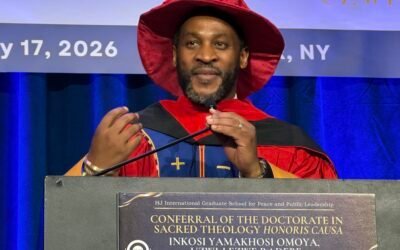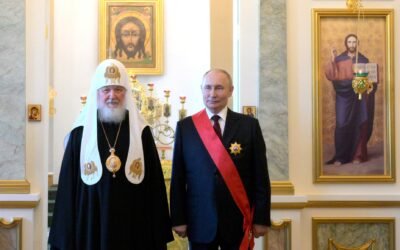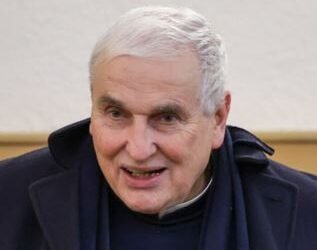A California State Appellate Court confirmed a typical American principle, and one at odds with the case law of other countries.
by Massimo Introvigne

On May 29, 2024, in the case San Jose Korean Central Church v. Korean Evangelical Church of America, the Court of Appeal for the Sixth Appellate District of the State of California rendered a major decision and reaffirmed a cornerstone of the American concept of religious liberty, which is significantly different from theories prevailing in several European countries.
At stake was the so-called “procedural noncompliance exception.” It is a well-established principle in American law that secular courts cannot second-guess the decisions of ecclesiastical courts, because doing so would violate the corporate religious liberty of the religious organizations that operate such courts. However, from time to time, those dissatisfied with the decisions of ecclesiastical courts seek redress in secular courts. They argue that there should be an exception to the general principle of non-interference in the cases where there is a gross and evident “noncompliance” by the ecclesiastical court with its own procedural rules. It is argued that rules of procedure are not inherently religious and whether they were respected in an ecclesiastical trial may be re-examined by secular courts.
While this principle has been affirmed in some European jurisdictions, it has been consistently denied by American courts. The California case concerned the excommunication and expulsion of the senior pastor of San Jose Korean Central Church (SJKCC), Francis Chung, and two elders of the same congregation, pronounced by SJKCC’s parent body, the Korean Evangelical Church of America (KECA). The decision originated from financial disputes and had devastating economical and spiritual consequences for Chung and his supporters.
Chung went to secular courts, claiming that KECA’s disciplinary board had violated its own procedural rules in the case against him and the elders, thus also violating their human rights and religious freedom. Both the first degree and now the appellate judgement found in favor of KECA.
The appeal judges noted that the decision against Chung and his allies “was an internal ecclesiastical decision that was not subject to review by the civil judicial system. The rule of judicial deference to ecclesiastical matters applies not only to decisions related to matters of religious doctrine; it also applies to issues of membership, clergy credentials and discipline, and church polity and administration.” This rule is even more strict in “hierarchical organizations” such as the KECA.
Chung objected that he had not asked the secular court to enter the substance of the matter but simply to find “whether the… [KECA] Committee’s actions were in compliance with the procedural requirements expressly set forth in the KECA Constitution, the Regulation for Judgment Committee, and the Law of Disciplinary Punishment” of KECA itself. However, the appellate court reiterated that there is no “procedural noncompliance exception” in American law to the general principle of secular non-interference in internal church matters.
The decision stated that, “For civil courts to analyze whether the ecclesiastical actions of a church judicatory are in that sense ‘arbitrary’ must inherently entail inquiry into the procedures that canon or ecclesiastical law supposedly requires the church judicatory to follow, or else into the substantive criteria by which they are supposedly to decide the ecclesiastical question. But this is exactly the inquiry that the First Amendment prohibits; recognition of such an exception would undermine the general rule that religious controversies are not the proper subject of civil court inquiry, and that a civil court must accept the ecclesiastical decisions of church tribunals as it finds them.”
It was not the first such decision on the matter of the alleged “procedural noncompliance exception.” In 1976, in “Serbian Eastern Orthodox Diocese v. Milivojević,” the U.S. Supreme Court concluded that there was no such exception in a case where the Serbian Orthodox Church removed and excommunicated its Bishop for the U.S. and Canada, despite the fact that a pro-Communist church subservient to the government of what was then Yugoslavia had clearly violated its own rules to remove the anti-Communist Bishop Dionisije Milivojević. The principle of non-interference prevailed upon any political consideration even in Cold War times.

The California decision, at any rate, reaffirms a distinctive principle of the American approach to religious liberty. Corporate religious freedom prevails on the religious freedom of individuals. Decisions by ecclesiastical courts cannot be disturbed and second-guessed by civil courts even when the church’s courts violated their own procedural rules.

Massimo Introvigne (born June 14, 1955 in Rome) is an Italian sociologist of religions. He is the founder and managing director of the Center for Studies on New Religions (CESNUR), an international network of scholars who study new religious movements. Introvigne is the author of some 70 books and more than 100 articles in the field of sociology of religion. He was the main author of the Enciclopedia delle religioni in Italia (Encyclopedia of Religions in Italy). He is a member of the editorial board for the Interdisciplinary Journal of Research on Religion and of the executive board of University of California Press’ Nova Religio. From January 5 to December 31, 2011, he has served as the “Representative on combating racism, xenophobia and discrimination, with a special focus on discrimination against Christians and members of other religions” of the Organization for Security and Co-operation in Europe (OSCE). From 2012 to 2015 he served as chairperson of the Observatory of Religious Liberty, instituted by the Italian Ministry of Foreign Affairs in order to monitor problems of religious liberty on a worldwide scale.



